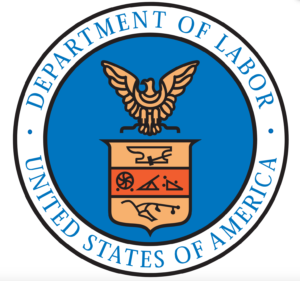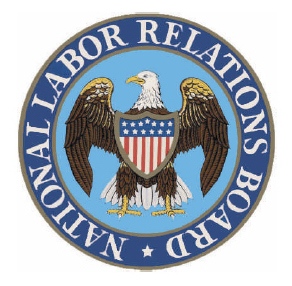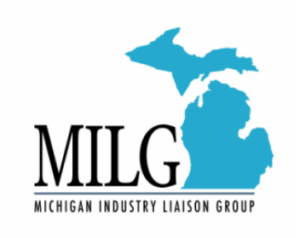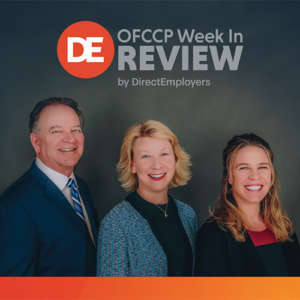Tuesday, January 8, 2019: Administrative Review Board Appointments

The ARB issues final agency decisions for the U.S. Secretary of Labor in cases arising under a wide range of worker protection laws, including OFCCP. The ARB’s cases generally arise upon appeal from decisions of Department of Labor Administrative Law Judges or the Administrator of the Department’s Wage and Hour Division. Deputy Secretary Patrick Pizzella led the selection process and made recommendations accepted by U.S. Secretary of Labor Alexander Acosta.
“The ARB’s mission is to issue legally correct, just, and timely decisions,” said Deputy Secretary Patrick Pizzella. “After a rigorous selection process, these members’ expertise will be a valuable complement to the Department of Labor’s overall mission to protect the American workforce.”
Read details about the three new appointees here.
Friday, January 11, 2019: Deadline for Comments on Joint-Employer Rule Extended

Catch up on the recent events in this arena by reading John Fox’s blog:
D.C. Circuit Muddies the Water Regarding “Joint-Employment” in Latest Browning-Ferris Case Decision, Setting Up Pressure for the NLRB this Year to Finalize its Pending Joint-Employer Rule
John breaks down the fundamentals of the case and walks through the impact from the original decision on 08/27/15 up through the most recent D.C. Court of Appeals decision on 12/28/2018.
Click here to read the request for comments in the Federal Register. There are currently over 25,000 comments. Get yours in here.
Click here to read the original announcement regarding the Notice of Proposed Rule-Making.
Friday, January 11, 2019: OFCCP Updates

- Employers should not expect new Corporate Scheduling Announcement Letters (“CSAL”) to be mailed until mid-February-March this year. This timeframe would put Scheduling Letters out around the beginning of April 2019.
- Note: The new batch of Scheduling Letters do NOT put an end to prior Scheduling Letters. Employers who previously received a CSAL should still prepare for and expect a Compliance Review per that earlier CSAL.
- OFCCP plans to accomplish 500 Focused Reviews to start this summer. Catch up on the announcement of Focused Reviews here, and the corresponding Directive here.
- Reviews will cover Section 503 (Individuals with Disabilities) only, yet are said to include a compensation review.
- Reviews will happen at corporate headquarters. Make sure your CEO is on board and up to speed on your Affirmative Action Program and initiatives.
- Document requests in the audit Scheduling Letter will be similar to #7- #14 of the current Itemized Listing and will include a focus on ADA policies.
- OFCCP completed 713 Supply & Service Compliance Reviews and 99 Construction Evaluations in FY2018. We anticipate an increase of Reviews in FY2019.
Friday, January 11, 2019: Today is the 24th Day of the Federal Government Shutdown – Labor Watch
Office of Federal Contract Compliance Programs – Open. Business as usual.
Equal Employment Opportunity Commission (“EEOC”) – Remains closed. Also, all EEOC digital portals are closed and not accessible to the public. What to do if you need to submit a position statement on behalf of your employer? Fax numbers are here. In addition, EEOC is without a quorum. There are two Commissioners — Acting Chair Victoria Lipnic, a Republican appointee, and Charlotte Burrows, a Democrat appointee.
- Quorum lacking. Under 42 U.S. Code § 2000e-4(c), at least three Commissioners are required to constitute a quorum of the Commission. This calls into question the EEOC’s continuing ability to operate fully and carry out its mandate of enforcing federal civil rights laws. The EEOC also currently lacks a general counsel.
- Due to the Shutdown, the upcoming EEOC Webinar “Modernizing EEOC Surveys, Data, And Analytics: A New Day For Data At EEOC,” previously scheduled for January 22nd, is postponed to February 27, 2019 at 2:00 PM EST.
E-Verify (Department of Homeland Security) – Services unavailable.
- Efforts made to minimize impact include:
- Suspended: The “three-day rule” for creating E-Verify cases (for cases affected by the unavailability of E-Verify).
- Extended: The time period during which employees may resolve Tentative Non-Confirmations (TNCs”). The number of days E-Verify is not available will not count toward the days the employee has to begin the process of resolving their TNCs.
- Important: Employers may not take adverse action against an employee because the E-Verify case is in an interim case status, including while the employee’s case is in an extended interim case status due to the unavailability of E-Verify.
- Federal contractors with the Federal Acquisition Regulation (FAR) E-Verify clause should contact their contracting officer to inquire about extending federal contractor deadlines.
National Labor Relations Board – Open. Business as usual.
Holiday Recap / Additional Hot Event: EEOC Wellness Rule – Employer Incentives No Longer EEOC-Approved

In response to the AARP’s successful Court challenge to the EEOC’s Final Wellness Rule (which was scheduled to become effective January 1, 2019) the EEOC has now vacated its Wellness Rule, including its approved employer incentives.
- Federal Register 12/20/18: Removal of Final GINA Wellness Rule Vacated by the Court
- Federal Register 12/20/18: Removal of Final ADA Wellness Rule Vacated by Court
Important: This is now VERY legally complicated, and companies with existing financial “wellness incentives” which continue into 2019 should immediately consult legal counsel. Companies offering incentives to employees to be well may or may not be violating the ADA and/or GINA. Employers now have no “Safe Harbor” understanding from the EEOC as to when a financial incentive an employer offers to its employees to engage in Wellness Programs may violate either or both the ADA or GINA. A company lawyer now needs to make that decision, company incentive by company incentive.
Note: The ADA and GINA make unlawful employer inquiries of employees about disability or severity of disability unless the employee voluntarily supplies his/her medical information to the employer. AARP challenged the EEOC’s Wellness Rule asserting that employer offers of large financial incentives to employees to engage in company approved Wellness Programs removed employee choice and thus rendered employee acceptance of the incentives “involuntary” and thus illegal.
So, employers are back to the place they were BEFORE the EEOC issued Rules to clarify when an incentive would allow for “voluntary” employee choice to accept or reject the incentive in exchange for releasing information to the employer about the employee’s disability or severity of disability.
SUBSCRIBE.
Compliance Alerts
Compliance Tips
Week In Review (WIR)
Subscribe to receive alerts, news and updates on all things related to OFCCP compliance as it applies to federal contractors.

